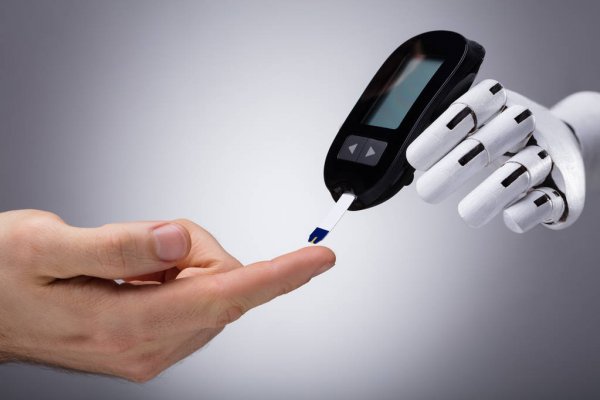With the increasing healthcare services in different countries, people are becoming aware of their health. This has developed a need for more proactive approaches to Healthcare. For achieving this, the industry needs artificial intelligence-based systems that will help doctors in providing quality care at home or at any other place.
It will also cut down operation costs that could be used for research and development purposes. The healthcare sector is using AI technology in several ways. Some of them include identifying heart failure risk factors, kidney disease treatment support, etc.
Some companies are even designing smart Band-Aid, which can help monitor diabetes by measuring glucose levels through body heat sensors. According to researchers, AI can lead to reduced human errors and improved efficiency in gathering data from medical devices.
AI Applications in Healthcare
AI is playing an important role in the field of Healthcare. It has become an essential part of the medical sector due to its growing demand. There are several applications that can be used in different fields of healthcare, but these applications must target one specific need. The working principle of AI is simple; it learns better by taking information from many examples and identifying patterns.
AI technology has made our lives easier than ever before through robotics, artificial vision, etc., which includes natural language processing (NLP), machine learning (ML), deep neural networks (DNNs), computer vision, speech recognition algorithms for diabetic retinopathy detection using DNNs on retina images, classification of skin cancer using DNNs on skin patches, automatic diagnosis of diabetes and hypertension, etc.
Benefits of AI in Healthcare:
Every year the healthcare industry generates a huge amount of data. Data is about extracting knowledge from these large datasets, and AI can play an important role in this process.
The use of advanced analytical techniques helps us to analyze information efficiently and provide better care to patients, which results in cost reduction for the medical providers.
According to IBM Watson CEO Sam Srivastava, “the current paradigm isn’t sustainable because it takes people away from patient care while they spend too much time on data entry due to outdated tools.” To solve this problem, we need artificial intelligence technologies like voice recognition systems, natural language processing (NLP), cognitive computing systems, cloud computing, etc., which can help doctors in managing their day-to-day operations.
Here are the few benefits of implementing AI in healthcare:
- AI Technology helps predict illness
- Nurses and Physicians Assistants can use AI Technology to assist Patients
- Data Analytics.
- Predictive Coding.
- Smart Wearable Devices.
How to implement AI in your healthcare business?
Artificial Intelligence (AI) is already delivering value to many industries, but Healthcare has much more potential. In fact, it doesn’t require a significant upfront investment or disruptive new technologies. Your current systems may be able to get started with AI right away.
Below we have mentioned some of the ways to implement AI in your healthcare business:
Get Your Business Started with Predictive Analytics
You can start with predictive analytics to help identify ways in which people are more at risk and then build on this over time. There are two main approaches to predictive analytics that you may want to consider:
Predictive Modeling:
This model works by using neural networks, which are systems that learn from the data you give them so they can make predictions based on new data. These models could forecast possible outcomes or risks for different groups of patients. You might also want to use machine learning algorithms, which analyze historical data to develop patterns and insights.
For example, by tracking patient records, you could identify chronic conditions earlier than ever before. Hence, treatments will be more effective in the long term.
Prescriptive Analytics:
Also known as causal modeling, it can help you assess potential outcomes based on actions taken by other organizations in similar circumstances.
For example, if you are opening a new hospital in an area with no nearby specialists or pharmacies, the AI could make the calculations needed to inform decisions about where staff should live and what equipment will be required to support them.
It could be beneficial for patients looking to gain access to leading-edge medicines and therapies outside of traditional working hours.
“Predictive analytics is not just about implementing smart devices – it’s more about how you can scale your business to provide better services for each patient, no matter what condition they have or where they live.”
Patient Engagement:
Many people in the healthcare industry have started using patient engagement technology. It is designed to improve communication between caregivers and patients. This can enable people to have better control over their care, quickly receive information that is relevant to them without having to wait for a doctor’s appointment, and communicate directly with their health care professionals whenever they need help.
These tools are capable of being used from home, so they don’t add strain on already heavily burdened doctors when it comes to managing appointments.
Various companies, such as Jiff, are utilizing predictive analytics in order to build a better platform that’s capable of providing patients with personalized information based on their needs. With the integration of AI into Healthcare, doctors will have a deeper understanding of each patient, and this plays a major role when it comes to treatment.
Conclusion
Analytics in Healthcare has quickly become a major focal point for many organizations across the world. Using AI in Healthcare allows companies to prepare for new challenges that are brought on by an ever-changing industry with high expectations from both doctors and patients when it comes to personalized treatment.
Predictive analytics helps combat this problem by using smart algorithms in combination with prescriptive analytics to help create personalized care plans for everyone involved. It also requires less time from actual doctors, allowing them to focus on what they do best – taking care of their patients.
For a healthcare business, it is always important to build your online presence. Hence, you should always be updated with the recent trends to rank yourself or simply get help from a Digital Healthcare marketing Agency.








